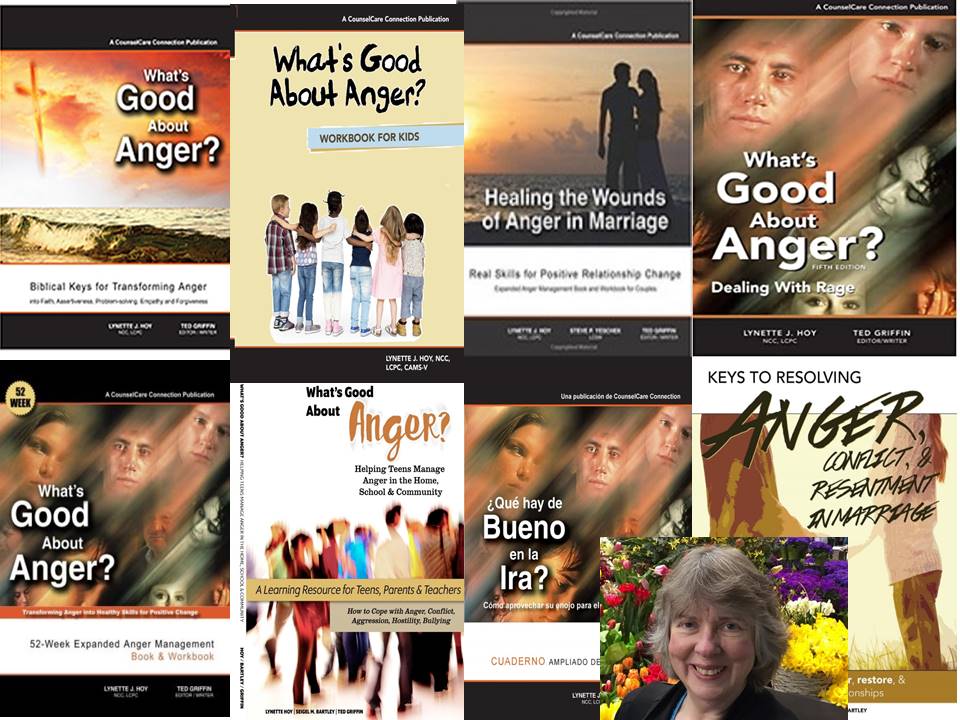
The 8 Biggest Mistakes Churches Make About Domestic Abuse
By Lynette J. Hoy, NCC, LCPC with CaringChurches.com
 Lynette J. Hoy is a licensed, clinical professional counselor. She was Director of Life CARE Ministries at Calvary Memorial Church in Oak Park, Illinois for over 9 years. As a domestic abuse counselor, Lynette Hoy has counseled many involved with domestic abuse situations. In our recent interview with her, we asked her to list some of the mistakes church leaders make in regard to domestic abuse. Here are the biggest mistakes she mentioned in her own words:
Lynette J. Hoy is a licensed, clinical professional counselor. She was Director of Life CARE Ministries at Calvary Memorial Church in Oak Park, Illinois for over 9 years. As a domestic abuse counselor, Lynette Hoy has counseled many involved with domestic abuse situations. In our recent interview with her, we asked her to list some of the mistakes church leaders make in regard to domestic abuse. Here are the biggest mistakes she mentioned in her own words:
1. Thinking that no one is being victimized in the congregation. Statistics prove that 1 out of 4 women have suffered from domestic violence. It is likely, therefore, that 25% of women in our churches have or are dealing with abuse by a partner.
2. Not believing the woman who reveals abuse and control issues in her marriage or intimate relationship. Women victims need to be validated and referred to a domestic violence agency for confidential counseling.
3. Breaking confidentiality and putting the woman at risk for harm. This is a big issue. Any woman dealing with physical or sexual abuse is in real danger. Safety must be the priority.
4. Confronting an abusive husband without regard for the safety of the wife. This mistake relates to number 3. One never knows how dangerous a situation might be in reality or how it could escalate. Confrontation may come later, but only when the victim is not in danger.
5. Believing that your church doesn’t need to be educated about domestic violence or that education will actually cause more harm. There is evidence that domestic abuse education in churches actually helps women come forward and get help. In addition, education motivates men (abusers or potential abusers) to identify issues of anger and control. Keeping domestic abuse ‘swept under the rug’ only enables the problem.
6. Neglecting to help a victim of abuse. Fear or neglect may cause a church leader or pastor to avoid intervening and helping the victim. God has called us to help those who are oppressed, to reach out to the weak and timid following Christ’s example.
7. Teach a wrong emphasis of headship and submission. Many battered women have been encouraged to silently apply "the submissive wife" principle of 1 Peter 3. So many well-meaning pastors and counselors have sent wives back into an abusive home after quoting the apostle Peter’s words:
“Wives, in the same way be submissive to your husbands so that, if any of them do not believe the word, they may be won over without words by the behavior of their wives, when they see the purity and reverence of your lives. Your beauty should not come from outward adornment, such as braided hair and the wearing of gold jewelry and fine clothes. Instead, it should be that of your inner self, the unfading beauty of a gentle and quiet spirit, which is of great worth in God’s sight. For this is the way the holy women of the past who put their hope in God used to make themselves beautiful. They were submissive to their own husbands, like Sarah, who obeyed Abraham and called him her master. You are her daughters if you do what is right and do not give way to fear” (1 Pet. 3:1-6).
Pastors and leaders need to emphasize that submission does not mean acceptance of disrespect and abuse in a marriage relationship.
8. Scold a woman for returning to an abusive relationship. Women/victims tend to return to abusive relationships or repeat these relationships. It’s important to recognize how powerless these women feel. Fear keeps them going back and fear tells them to leave. Continue to be involved with them. Pray for these victims that their eyes would be opened and they will have the courage to leave for good when the situation doesn’t change and continues to be dangerous.
To contact Lynette or to learn more about her ministry, see:
Lynette J. Hoy, NCC, LCPC
CounselCare Connection, P.C.
What causes domestic violence/abuse? When people cannot deal with stress, unmet goals, frustration, conflict and anger, when they are under the influence of alcohol and drugs, when they want to be in control – they strike out forcefully to vent their anger and frustration towards and to gain control over the person with whom they are angry.
Many can be helped by learning how to manage anger but, your husband should probably stay in jail in order to protect society and you from further harm. He also needs a domestic violence anger management program, to stop drinking and attend AA meetings, individual counseling for anger management and a supernatural change in his life. I offer anger management courses for people struggling with lower levels of anger.
John Gottman and Neil Jacobsen in their book on Battering Husbands say that there are two types of batterers: Cobras and Pitbulls. Cobras are more severely violent and tend to become still and focused before striking the victim. Your husband fits the Cobra style. Take heed! Read about battering.
What cycle occurs? Spouses (a great percentage are men) who control and manipulate through violence are drawn to spouses (usually women) who are passive.
Women learn a helpless sort of syndrome becoming victimized- staying in these threatening relationships – fearing financial loss, divorce and possible repercussions from angry husbands if they leave.
Look at the Wheel of Violence here. Power and Control are at the center. This is not a healthy relationship where there is respect, love, equality, safety and trust. This is a relationship where one partner (usually male) intimidates, isolates, abuses, threatens, manipulates, etc., the other partner
What can you do now?
1. Protect Yourself . Get counseling and advocacy by contacting a domestic violence agency near you. If you live in the USA call the National Domestic Violence Agency at : 1-800-799-7233 . If you live outside the USA see the International Domestic Violence Agency listings.
This man should no longer be allowed to see you or any children. Hopefully, you have filed an order of protection against your husband in the court. An Order For Protection (OFP) is a court order that will help to protect you from domestic abuse. An Order For Protection tells the abuser to stop harming or threatening you.
Your husband needs to be held accountable for this battering incident by the courts and you should press charges against him. If any children have been harmed — the law protects children in this country from physical, emotional/mental, sexual abuse and neglect. Look up
resources for children at ChildHelpUSA or call them at: 1-800-4A-Child. Check out the ChildAbuse.org site as well. Read the article on the relationship between domestic violence and child abuse.
2. Take care of yourself by stabilizing in a safe environment. If you allow your husband to return — your life will be in danger again. How can you fall asleep at night? Do all that you can to live in a safe residence so, you can begin to experience peace in your life vs. fear.
3. Move forward with your life. God does not want you harmed. You need faith. You need spiritual strength and focus. You need to know that the God of the universe cares about you and your situation. Read about How to Know God Personally. Order a book to help your faith grow such as: An Anchor for the Soul: Help for the Present, Hope for the Future by Ray Pritchard.
4. Grow personally by learning assertiveness skills and how to set boundaries in relationships. Order the Codependent No More by Melody Beattie and Asserting Yourself by Sharon Anthony Bower, Gordon H. Bower.
5. Get support. The domestic violence agency may have a support group you can participate in. A group like this can give you perspective on your situation, hope for the future and help you learn skills to protect yourself. Help you learn that you deserve to be treated with dignity and to be protected by your spouse vs. be threatened by him.
6. Regarding remarriage: I encourage you to order the DivorceCare tapes: 1-800-489-7778 or 1-919-562-2112. The audiotapes are only $15.00. You can also locate a DivorceCare support group near you by searching their site.
If you need a counselor, check out the directory at: AACC for a professional in your area or Focus on the Family in Canada.
God bless you!
Read the How do I stop abusing my wife and Assert Yourself! articles next.
© copyright 2003 Lynette Hoy, NCC, LCPC
~ Lynette J. Hoy, is a marriage and family counselor, speaker, writer. Her newly released book, What’s Good About Anger? can be ordered online at: www.www.whatsgoodaboutanger.com or Amazon.com. Visit Mrs. Hoy’s other sites: www.hoyweb.com , www.counselcareconnection.org , www.cbwc.net , www.lifecareweb.com.
Read the How do I stop abusing my wife and Assert Yourself! Take this online survey to measure your anger: .
Purchase the book What’s Good About Anger? or consider ordering one of the anger management course & certificates below to help you learn coping skills to manage your anger and change your self-talk. Order new Home Study Anger Management course and certificate: this comes with a new workbook and more practical skills and insights! Read more about the book and authors here: What’s Good About Anger
Here are ways to order the book or courses:
© copyright 2011 by Lynette J. Hoy, NCC, LCPC
All Rights reserved. No part of this site may be reprinted, transmitted or r
